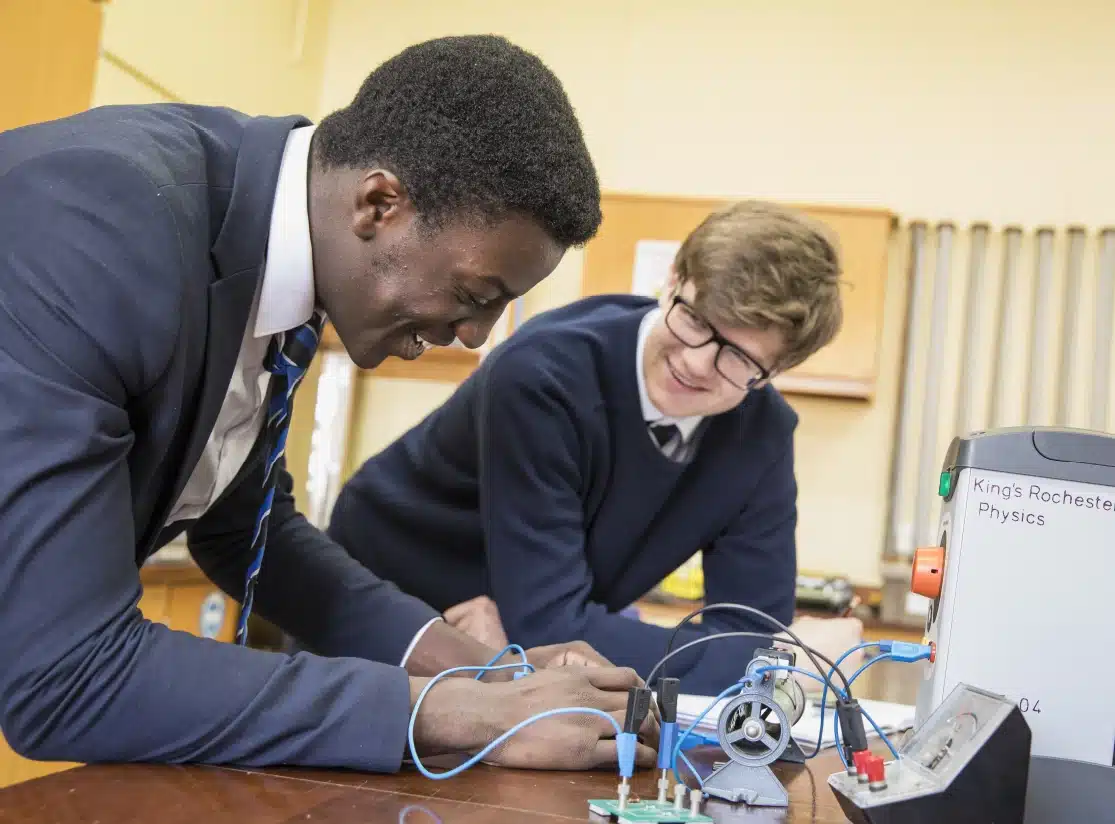Physicists explore the fundamental nature of almost everything we know of. They probe the furthest reaches of the earth to study the smallest pieces of matter. Join them to enter a world deep beneath the surface of normal human experience.
Topics covered
A level Physics lasts two years, with examinations at the end of the second year. Below are the topics covered in each year.
First year of A level
- Measurements and their errors
- Particles and radiation
- Waves
- Mechanics and energy
- Electricity
Second year of A level
- Further mechanics and thermal physics
- Fields
- Nuclear physics
- Astrophysics
Physics, like all sciences, is a practical subject. Throughout the course, you will carry out practical activities including:
- Investigating interference and diffraction of laser light
- Measuring acceleration due to gravity
- Investigating systems that oscillate
- Investigation of the links between temperature, volume and pressure
- Safe use of ionising radiation
- Investigating magnetic fields
These practicals will give you the skills and confidence needed to investigate the way things behave and work. It will also ensure that if you choose to study a Physics-based subject at university, you’ll have the practical skills needed to carry out successful experiments in your degree.
Examinations
There is no coursework on this course. However, your performance during practicals will be assessed. There are three examinations at the end of the two years for A Level, all of which are two hours long. At least 15% of the marks for A level Physics are based on what you learned in your practicals.
Entry requirements
A Level Physics builds on the work done in GCSE Science and Maths, so you’ll need grade 7 in Physics or Double Science and a grade 7 in Mathematics.
Examination Board: AQA
Specification: 7408
Mrs E. Parren – Head of Physics
SIXTH FORM










